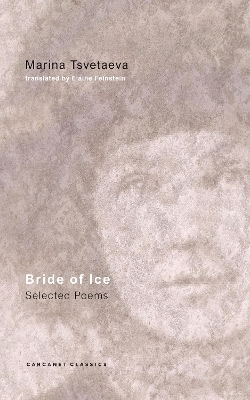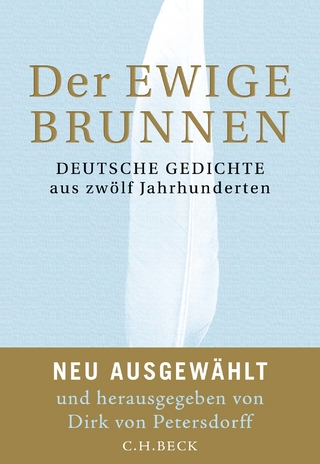
Bride of Ice
Carcanet Classics (Verlag)
978-1-80017-227-2 (ISBN)
Marina Tsvetaeva is among the great European poets of the twentieth century. With Anna Akhmatova, Boris Pasternak and Osip Mandelstam, she retained her humanity and integrity through Russia's 'terrible years' of the Great Terror. Even in her long, tragic exile, her roots were in Russia and the great tradition of Russian poetry. Her voice lives in part because it remains alert to her past, and to cultures, especially French, where she spent her exile.
When Elaine Feinstein first read Tsvetaeva's poems in the 1960s, they transformed her. Their intensity and honesty spoke to her directly. To her first translations, published to acclaim in 1971, she added in later years, not least the sequence 'Girlfriend', dedicated to Tsvetaeva's lover the poet Sofia Parnok. Feinstein published Tsvetaeva's biography in 1987.
Marina Tsvetaeva was born in Moscow in 1892. Her father was a professor of art history at the University of Moscow and her mother, who died of TB when Tsvetaeva was fourteen, was a gifted pianist. Tsvetaeva's first poems, Evening Album, were self-published in 1910. In 1912 Tsvetaeva married Sergei Efron, with whom she had two daughters, Alya and Irina. During the Civil War Efron fought in the White Army while Tsvetaeva and the children endured the Moscow famine. Irina died of starvation in 1920. In 1922 the Civil War ended with Bolshevik victory and Tsvetaeva joined Efron in exile in Prague. It was here that she wrote some of her greatest poetry. In 1924 Tsvetaeva's son Georgy was born. The family moved to Paris in 1925. Tsvetaeva became isolated from Russian literary emigres and, increasingly, from Efron and Alya, whose allegiances moved towards Communism. Both returned to Russia in 1937, Alya freely and Efron to avoid arrest for his involvement in the murder of a defector. Tsvetaeva followed him to Russia with Georgy in 1939, unaware of Stalin's Terror. Alya was arrested and sentenced to fifteen years in prison. Efron was shot in 1941. In the same year, following the German invasion, Tsvetaeva and Georgy left Moscow for Yelabuga in the Tartar Republic. Tsvetaeva hanged herself there on 31 August 1941.;Elaine Feinstein was educated at Newnham College, Cambridge. She has worked as a university lecturer, a subeditor, and a freelance journalist. Since 1980, when she was made a Fellow of the Royal Society of Literature, she has lived as a full-time writer. In 1990, she received a Cholmondeley Award for Poetry, and was given an Honorary D.Litt from the University of Leicester. Her versions of the poems of Marina Tsvetaeva - for which she received three translation awards from the Arts Council - were first published in 1971. She has written fourteen novels, many radio plays, television dramas, and five biographies, including A Captive Lion: the Life of Marina Tsvetaeva (1987) and Pushkin (1998). Anna of all the Russias: The Life of Anna Akhmatova was published in 2005. Elaine Feinstein's Collected Poems and Translations (2002) was a Poetry Book Society Special Commendation. Her evocation of Stalin's Russia, The Russian Jerusalem, was published by Carcanet Press in 2008. She served on the Council of the Royal Society of Literature, of which she was a Fellow, as a judge for most of the current literary prizes, and as Chair of the Judges for the T.S. Eliot Award. She received a Civil List Pension in 2010. She died in September 2019.
| Erscheinungsdatum | 29.12.2022 |
|---|---|
| Übersetzer | Elaine Feinstein |
| Sprache | englisch |
| Maße | 135 x 216 mm |
| Themenwelt | Literatur ► Lyrik / Dramatik ► Lyrik / Gedichte |
| ISBN-10 | 1-80017-227-3 / 1800172273 |
| ISBN-13 | 978-1-80017-227-2 / 9781800172272 |
| Zustand | Neuware |
| Haben Sie eine Frage zum Produkt? |
aus dem Bereich


